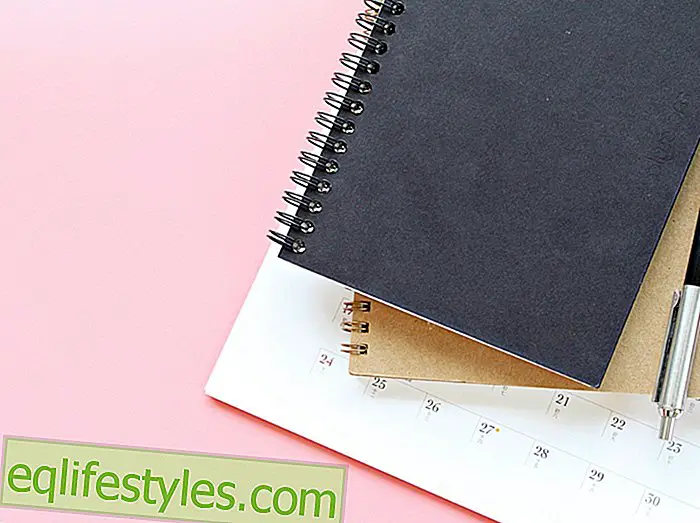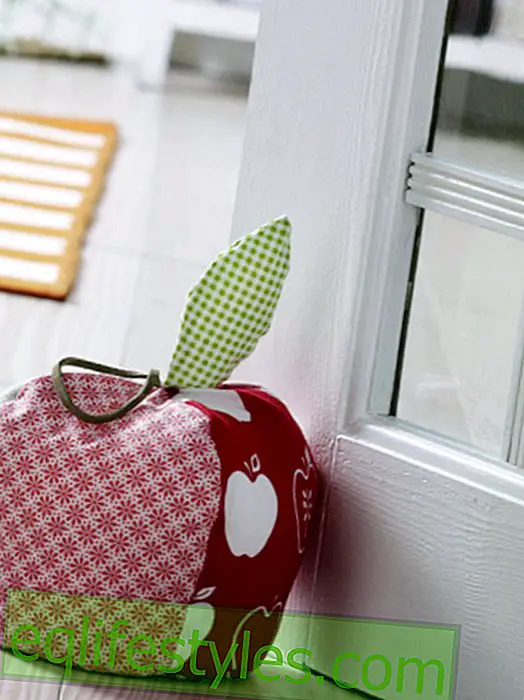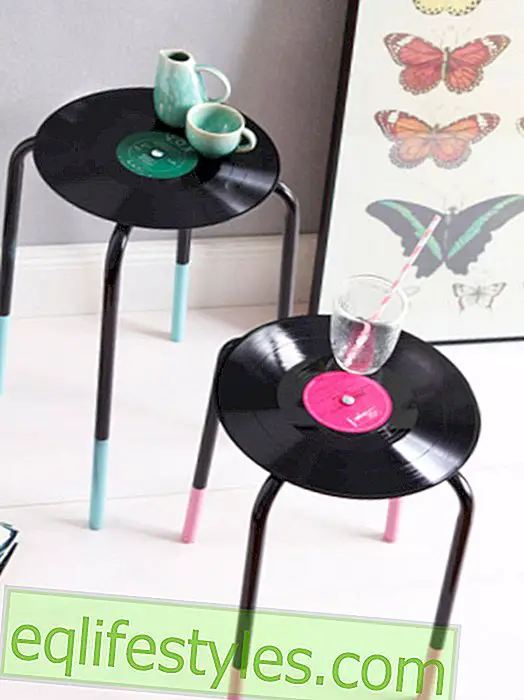Mara was diagnosed with the chronic intestinal disease ulcerative colitis in 2016. As part of our #WonderbarECHT campaign, we talked to Mara about her life with an artificial gut outlet and how she managed to accept her body as it is.

Photo: Instagram / uc_warriorprincess
- What was your first thought when your doctors told you to get surgery for your illness?
- Why did you finally decide for an artificial bowel outlet?
- How did your environment react to your stoma?
- Do you sometimes look funny in public?
- How did you manage to (re) love your body and accept it as it is?
- What moved you to make your story public?
- How are you today? Do you still take medication?
- What is your tip to other people who are currently dealing with the decision for an artificial intestinal outlet?
How does it live with an artificial intestinal outlet? On her Instagram account uc_warriorprincess Mara shares her experience with the chronic bowel disease ulcerative colitis. She wants to encourage other people who are also affected by her open approach to the disease. Mara's Massage: "Do not be different, be more afraid to be like everyone else." We interviewed her.
What was your first thought when your doctors told you to get surgery for your illness?
When I got the diagnosis of ulcerative colitis in 2016, everything went pretty fast. I had my first serious episode of hospital treatment, went home after I was discharged, and it all got worse somehow. So I came back to the hospital very quickly and was in the intensive care unit with a toxic megacolon. I can only vaguely remember everything that happened at the time, because I was tried with strong painkillers to sleep most of the time. One day I woke up and my bedside doctor and a surgeon who told me that I would have to operate immediately. My parents worked to get at least one more drug tested before they needed to have surgery. And in fact, I was feeling much better within a very short time.
It was only when I was moved back to the normal ward that I had time and energy to think about what it meant to be operated on. And my only thought was: I do not want that. I'd rather die than carry an artificial bowel. And I swore to myself that I would try everything to prevent that from happening.
Why did you finally decide for an artificial bowel outlet?
The decision for an artificial intestinal exit came rather slowly. With every drug that did not work, my fear grew that I needed surgery. And with every non-functioning drug I realized that I have to deal with it. So I did just that. I looked for like-minded people and tried to befriend myself with the idea. The final decision was made in 2018. After reducing some of my medications, I slipped back into a serious push. 30 daily stools, blood loss, fever. I had tested all medicines and I just did not want to go on like this. I've missed so many events and opportunities in the last few years because I was not feeling well. I could barely eat anything, and certainly not the things I liked because I was in pain for hours and days. I wanted to live a "normal" life again and do things that you do in your mid-twenties.
Check out this post on InstagramWhat is it worth to have a perfect looking body? I was through, I was simply frustrated and overwhelmed. I had the feeling I can not ever love and accept my body again. As time went on I started to look at my body and my new scar in a different way. The surgeries I had, planned or not, saved my life. How can I make it my life? ________________________________ My scars are not ugly at all. They show what I've been through. They will always show me their battles, but they'll show me how strong I was, on and will be! ________________________________ "Alessia Cara ________________________________ #bodypositivity #ibd #ibdawareness #crohns #crohnsdisease #colitis #colcerativecolitis #colitisulcerosa #ibdsuperheroes #ibdwarriors #warrior #survivor #fighter #scar #wound #ileostomy #ostomy #bag #stopbodyshaming #loveyourself #chronicloveclub #chronicillness #hospital #doctor # projectlimit #woundlit
A post shared by Mara | 24 (@uc_warriorprincess) on Jan 11, 2019 at 7:31 PST
How did your environment react to your stoma?
I have always been very open with the whole situation, so everyone in my immediate vicinity knows about the stoma. In fact, most are more fascinated by the whole. Only recently I had to change my bag in a small toilet room with the help of two friends and the two have looked at everything very interested.
It sometimes gets uncomfortable only when my little Fawkes (that's what I call the stoma affectionately) loudly pisses. Unfortunately, I can not control that and sometimes it's a little louder.
Do you sometimes look funny in public?
I usually wear my ostomy bag "hidden" in a high waist jeans, under a dress or skirt or under a leggings, but that alone because it's the most comfortable for me. As a result, you do not actually see the bag. And who does not know that he is there, the small bulge in the pants, when he is filled, barely notice.
The only but unfortunately always negative, is the reaction of people, if I come from a disabled toilet. One does not look at the disability and therefore it is simply not there for many people. I often feel like having to justify myself, even though I have every right to use these restrooms.
How did you manage to (re) love your body and accept it as it is?
Waking up with an artificial bowel and a large open wound on my stomach was hardly what I had imagined for my life. And I've lost a lot of tears in the first few weeks. I was just very frustrated with the whole situation. I was going to be minimally invasive at first and had two tiny tiny scars and suddenly everything went awry.
But the situation helped me to see things differently. I would not be alive without my artificial bowel outlet today. And the scars also testify to a fight I won. The whole may be disgusting and ugly to others, but for me this is my life saver. I look at myself in the mirror and can see every day how strong I was in the last year. And even today in difficult and weak moments, I know that nothing gets me down so fast. My scars are mine. My scars have shaped the person standing here today. So how should I hate something that has given me so much. I'm just perfect imperfect and incredibly proud of it.
What moved you to make your story public?
The disease ulcerative colitis as well as Crohn's disease is considered a taboo disease. No one likes to talk about eliminations and addressing this topic is still very unpleasant for many. Often you hear things like: Colitis? That's just a little diarrhea and stomach ache. Unfortunately, often just the perception of the disease is missing. Many patients are excluded from their circle of friends because they never have time. At work or at school, one quickly becomes a hypochondriac. Having a chronic inflammatory bowel disease is a major challenge both physically and psychologically. It is not always possible to remission the disease with medication. I want to draw attention to what this disease brings. Would like to show fellow patients that they are not alone and would like to show the world out there that the disease is not just a bit of a stomach ache. We need an understanding that not every disease needs to be visible to be there.
In addition, my body image has changed greatly due to the surgeries that I had. I carry a big scar and an ostomy bag on my stomach so that I no longer fit into our current ideal of beauty. With my posts I would like to try to create an awareness that every person is beautiful in his very own way. We are perfect as we are and should stop putting people in categories like "beautiful", "average" and "not beautiful".
How are you today? Do you still take medication?
Compared to the last few years, I feel a lot better. Unfortunately, a chronic autoimmune pancreatitis has developed from the colitis, which has brought me to the hospital five times this year alone. And also the rectum stump, which lies in me until the possible relocation, is still inflamed. I will be as it currently looks, so for a long time to rely on immunosuppressive drugs and other drugs.
Nevertheless, I love my life the way it is. It is not always easy, but you learn to appreciate the good days and moments much more and can often even enjoy small things really.
What is your tip to other people who are currently dealing with the decision for an artificial intestinal exit?
Does not make this decision dependent on others. Think of you first. Will this surgery give you relief and a better life? Carrying out an artificial bowel outlet may be frightening at first, the whole life is suddenly turned upside down. But the OR can at best give you a whole new life. Try to deal with the topic before surgery, maybe look at how patients change their bags, maybe try to meet like-minded people on social media and ask as many questions as possible. You will see that more people out there, and especially many young people, are actually dependent on a stoma.
And most importantly, if there are people around you that are hostile to you and you do not mean to accept them, then you should make it clear that it is not you who are wrong with something. The OR may change your appearance in some way, but not your personality! If you do not accept it, you simply have not earned it in your life!
Continue shopping:
#WonderbarECHT: How Crohn's disease saved my life
Interview with "Mutruf" founder: Chris Gust helps with anxiety and panic attacks
Carina Møller-Mikkelsen: That's how the former bodybuilder became a curvy model
Jules von schoenwild in an interview: "My way to more self-esteem was long and painful, but also beautiful"









